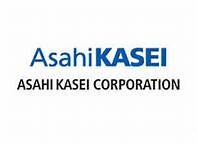Asahi Kasei Celebrates Second Consecutive Win In Materials Category Of SPE Automotive Innovation Awards
 |
LIVONIA, MI--Nov. 26, 2013: Nissan Motor Corp. and Asahi Kasei Corp. were honored at the 43rd Society of Plastics Engineers (SPE) Automotive Innovation Awards Gala, winning "Most Innovative Use of Plastics" in the Materials category for the 2014 Nissan® Sentra instrument panel. The winning material – SUNVIEO – is a high-performance thermoplastic vulcanizate (TPV) with an exceptionally high melt flow rate. The new material simplified the deployment of soft, cost effective, injection moldable instrument panel (IP) skins across global platforms.
"We wouldn't be here if our customers didn't challenge us to defy the status quo," said Kin-ya Matsuzawa, general manager, new business development of Asahi Kasei Chemicals. "While this is our second win in the SPE materials category, this award is particularly special, as it is no small feat to be part of an international, cross-company collaboration and get recognized for our work once again."
The Design Challenge "One of the technical requirements – the 1mm (0.040 inch) thickness of the IP skin – is possible today, but only with costly and sophisticated tooling technology," said Yukinori Nakajima, TPV technical manager for Asahi Kasei Chemicals. "Unfortunately, these types of resources are not readily accessible in every country in which OEMs conduct manufacturing. But what if we were able to reframe the problem?" continued Nakajima. "If the solution lay in a higher technology material, now your only limit is having access to an injection-molding machine large enough to produce a bumper. This is a solution that is globally achievable."
How an Unconventional TPV Raises the Bar Asahi Kasei approached TPVs for the Nissan Sentra due to the material's inherent softness – a result of high cross-linking within the material chemistry. But the melt flow of a highly cross-linked TPV ranges from 0.5 to 2.0 g/10 min. Given this constraint, it would be impossible to mold a traditional TPV in a 1mm wall thickness in an IP. The innovation of SUNVIEO – with a specific gravity of 0.90 g/cm3 – is that in addition to being highly cross-linked, its melt flow of 250 g/10 min made it possible to produce thin wall IPs with pleasing aesthetics and haptics.
The ultrahigh melt flow of the material also assists with cycle time reduction. When comparing injection molded IPs to thermoformed IPs or slush molded IPs, there is an improvement in cycle times over either method of 14-80%. This is a big win for production efficiency and reduces bottom-line costs.
SUNVIEO also performs exceedingly well at very cold temperatures. Its low temperature ductility of -49 degrees C (-56.2 degrees F) is ideal for air bag deployment in the world's chillier regions.
Complex Geometry? Check. "Automotive interior designers will appreciate the design freedom SUNVIEO offers," said Iichiro Kitsuda, vice president of sales for Asahi Kasei Plastics. "The ultrahigh melt flow opens up so many new possibilities from complex geometries to deep draws and pretty much whatever the designers want to throw at it."
An Environmental Leader SUNVIEO also has a deep environmental impact when comparing injection-molded IPs to thermoforming and slush molding. The latter two methods produce 15-25% more scrap than an instrument panel molded with SUNVIEO. Further, when the energy usage of competing processes is compared, injection molding is by far the clear leader with energy savings that range from 31-55%. These energy savings further accounted for a 215 metric ton (473,000 lbs.) reduction of CO2 equivalent when compared to Thermoplastic Urethane (TPU) slush molding.
An additional benefit of SUNVIEO is how it gets processed prior to part production. Thermoforming and slush molding require additional processing, whether it is converting the pellet form of the material to sheet or pellet to powder for slush molding. No conversion is necessary for SUNVIEO, which helps simplify production and reduce production timeframes.


